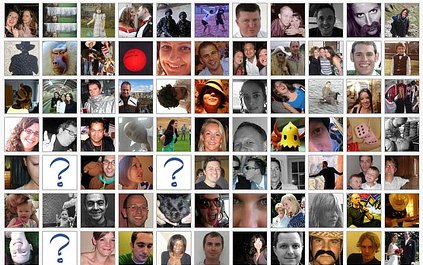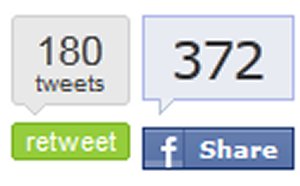Last year I wrote a list of 16 annoying communications that must end in 2011. It was one of my most popular articles of the year. I guess my readers just love to hear me complain. Given that my crankiness is in demand, I decided to put together a new list of annoying communications for the new year.
Shortening someone’s name right after you’ve been introduced
 Almost everyone who has a long first name, for which there are many shortened versions, must deal with this. If someone says their name, call them by that name and no other version. If a person introduces themselves as “Elizabeth” then that’s what you call her. You may want to call her “Liz” but that’s not what she wants. So don’t do it.
Almost everyone who has a long first name, for which there are many shortened versions, must deal with this. If someone says their name, call them by that name and no other version. If a person introduces themselves as “Elizabeth” then that’s what you call her. You may want to call her “Liz” but that’s not what she wants. So don’t do it.
What’s far more irritating is when the name shortening happens immediately after an introduction.
“My name is Robert.”
“Hi Rob.”
“Hi Shmuck.”
Not remembering someone’s name right after you’ve been introduced
 I’m monstrously guilty of this as I can immediately forget someone’s name the instant they tell it to me. Others who are guilty of this will declare, “I’m so bad at remembering names.” Nice try. Announcing your fallibility is not an excuse. Unless you’re being introduced to the entire choir, be in the moment and remember people’s names. If you need to, use some tricks such as associate that person with someone else you know with the same name. If it’s a name you’ve never heard before, repeat it back to make sure you’re pronouncing it correctly.
I’m monstrously guilty of this as I can immediately forget someone’s name the instant they tell it to me. Others who are guilty of this will declare, “I’m so bad at remembering names.” Nice try. Announcing your fallibility is not an excuse. Unless you’re being introduced to the entire choir, be in the moment and remember people’s names. If you need to, use some tricks such as associate that person with someone else you know with the same name. If it’s a name you’ve never heard before, repeat it back to make sure you’re pronouncing it correctly.
Tagging objects as people in Facebook photos
This was funny the first time, but not anymore. Especially now that Facebook puts thumbnails of your five most recent photos at the top of your profile. If you don’t want people thinking you’re a bowl of spaghetti or the hooded assassin in a New Yorker cartoon, you need to untag yourself.
Tagging people in Facebook articles just to get them to read them
 I’m more than happy to accept a personal email or a Facebook message, but to tag me in an article on Facebook just to get me to read it is obnoxious. The Facebook wall is an individual’s public expression, and it’s not designed for you to promote your crap. This was a major problem with MySpace as people would post photos of whatever they were selling on their friends’ walls. The site just became a useless marketplace for digital graffiti and we now see what’s happened to that.
I’m more than happy to accept a personal email or a Facebook message, but to tag me in an article on Facebook just to get me to read it is obnoxious. The Facebook wall is an individual’s public expression, and it’s not designed for you to promote your crap. This was a major problem with MySpace as people would post photos of whatever they were selling on their friends’ walls. The site just became a useless marketplace for digital graffiti and we now see what’s happened to that.
Opening a panel discussion by allowing the panelists to first talk about themselves
 This irritates me to no end, and it’s an incredibly lazy move by the moderator. If you have four panelists, and you give them five minutes each to talk about their business “just to set the stage” you’ve wasted 20 minutes on information NO ONE WANTS TO HEAR. The audience has a program with speaker bios, let them read it on their own. The moderator should just give a one line introduction to each and then begin the session. Unfortunately, that’s just one way that most panel discussions suck. To make your panel session not suck, download and read my article, “More Schmooze, Less Snooze: How to Deliver ‘The Most Talked About’ Panel Session.”
This irritates me to no end, and it’s an incredibly lazy move by the moderator. If you have four panelists, and you give them five minutes each to talk about their business “just to set the stage” you’ve wasted 20 minutes on information NO ONE WANTS TO HEAR. The audience has a program with speaker bios, let them read it on their own. The moderator should just give a one line introduction to each and then begin the session. Unfortunately, that’s just one way that most panel discussions suck. To make your panel session not suck, download and read my article, “More Schmooze, Less Snooze: How to Deliver ‘The Most Talked About’ Panel Session.”
Asking a blogger, “Can you blog something for me?”
 This is thankfully not as bad as it used to be, but I still get these completely inappropriate requests. Blogging is a job. There may not be direct income from it, but it can be used to build an industry brand and create relationships. Making this request is asking, “Can I intrude in on your personal brand? Would you promote something you know little to nothing about? Would you do some work for me for free?”
This is thankfully not as bad as it used to be, but I still get these completely inappropriate requests. Blogging is a job. There may not be direct income from it, but it can be used to build an industry brand and create relationships. Making this request is asking, “Can I intrude in on your personal brand? Would you promote something you know little to nothing about? Would you do some work for me for free?”
It’s often a thoughtless request with the hope of just getting free press.
The most egregious case of this I’ve ever received is spelled out in this two-part story, “Hey PR, Bloggers Are Not Tools to Be Used.”
When this type of request is OK is when someone who you do know and have a relationship with asks you to retweet something on Twitter or to “Like” something on Facebook. It’s a sign of support and assuming it doesn’t infringe the brand you’re trying to create, it takes little to zero time to do.
Stringing people along
Whether dating or in business, there’s nothing more annoying and rude than giving someone hope by stringing them along with an “I’m so busy, call me next month” response. I don’t care how important you think you are, no one is truly that busy that they can’t give the person the current status even if they don’t know what the current status is. It could be as simple as “I have no information for you now, and it’s not looking promising, but you’re welcome to follow up in a month if you want.”
This only works if you actually connect with the person on the phone or in person. If you send a lot of emails or leave a lot of phone messages and get no response, take the hint. The recipient is not required to email or call back every person to tell them nothing is happening.
Attaching videos and uncompressed photos to emails
 Most of us 45 and under don’t make this mistake. It’s the fault of our parents and grandparents who just learned how to attach a file to an email.
Most of us 45 and under don’t make this mistake. It’s the fault of our parents and grandparents who just learned how to attach a file to an email.
“Did you get the wedding video? I attached it.”
It’s our responsibility to show the older generations how to use YouTube, Kodak Gallery, or any of the hundreds of other video and photo sharing services.
Not understanding what BCC is
With every email we send, we see the To:, CC:, and BCC: fields. After at least 15 years experience writing emails, we should all know the difference. Sadly, at least once a year, we receive an email with 50 people in the CC: field. Inevitably someone will hit “Reply to All” in a response just to the sender. Then someone else will hit “Reply to All” and tell everyone to stop hitting “Reply to All.” What fun.
For more, read “Social Media ‘Gurus’ and Bloggers Are Egotistical Jerks.”
Sharing without consumption
 This is the behavior of liking, sharing, or retweeting a piece of content without reading, listening, or watching it. It’s often done as a favor to a friend (e.g., “Would you retweet something for me?”). More often it’s a means to game online popularity to build your own social media profile. We can now see actual results of this as others are putting weight on social reputation services such as Klout and Kred.
This is the behavior of liking, sharing, or retweeting a piece of content without reading, listening, or watching it. It’s often done as a favor to a friend (e.g., “Would you retweet something for me?”). More often it’s a means to game online popularity to build your own social media profile. We can now see actual results of this as others are putting weight on social reputation services such as Klout and Kred.
These services unfortunately have a major fallibility that awards the content sharer rather than the content creator. For example, if someone tweets this blog post without my Twitter handle (@dspark), and then they’re retweeted, then their Klout score is increased, but mine isn’t. Therefore, the “klout” goes to the person who shared the content, not the person who created it. This happens all the time.
Hiring companies that are looking for employees with audiences are now using these services as benchmarks. One friend applied for a job which required him to have a Klout score of at least 30.
For an egregious case of sharing without consumption read “Here’s What’s Wrong With Social Media: Sharing Without Consumption” and for more supporting data read my Mashable article “Why Sharing Online Content Might Be Too Easy.”
Cross posting all tweets to Facebook
Does anyone enjoy this? Thankfully Facebook doesn’t reward this lazy type of posting. Most of these reposted tweets will not show up in your newsfeed. People who turn the Twitter app on in Facebook just end up clogging their profile page. In the end, it only reflects poorly on the user.
Wishing “Happy Birthday” on Facebook
I know I’m going to get a lot of heat for this, but in all the years people have said the phrase, “It’s the least I could do,” this truly is, outside of doing nothing at all, “The least you can do.” Nothing says, “I barely care,” then to type “Happy Birthday” on someone’s profile page.
If you do truly want to wish someone “Happy Birthday” then do something else, anything else other than just typing “Happy Birthday.” It’s great that Facebook reminds us when people have birthdays. Use that as a chance to reconnect with the person with a positive message about them or your relationship with them. Or, better yet, send a personal video message through Facebook. For more, read “I Just Sent 555 Personalized Video Holiday Greeting Cards-How I Did It.”
Please, just do anything else, write anything else, beyond just “Happy Birthday.”
Facebook pages that require you to hit the “Like” button just to see the content on the page
This is really obnoxious, and it’s a method of gatekeeping content. The fan page is requiring me to make a commitment before I can see the content. This goes hand-in-hand with having a splash screen with a giant arrow that says, “Click our ‘Like’ button.”

It’s not the best way to treat and talk to your audience.
“We want to capture you so we can send more ad messages to you. Problem is we also believe you’re an idiot, so we have to tell you what icon to click.”
Now it’s your turn to complain
There’s got to be more things that annoy you. What have I missed?
Creative Commons photo credit to Dan Taylor, JAXPORT, and Adam Tinworth.
Stock photos of angry guy, confused person, and name tag from Shutterstock.




